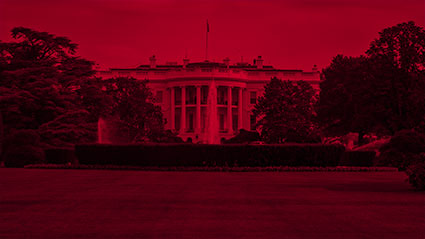Constitutional Crisis: The (retired) Generals & the President
June 18, 2020
Zoom Panel Discussion: Moderated by Professor Josh Kastenberg
June 23, 2020
5:30 to 7:00 PM
Email Cheryl Burbank at burbank@law.unm.edu to register. You will get a link for the Zoom meeting on the 23rd.
This program has been approved by NMMCLE for 1.5 General CLE credits.
In the first week of this month, the nation was surprised to learn that retired general officers (generals and admirals) including James Mattis, Colin Powell, Michael Glenn Mullen, and William McRaven (to name a few) spoke out against President Donald Trump’s response to demonstrations across the United States. President Trump threatened to unilaterally invoke the 1807 Insurrection Act and federalize the National Guard as well as use the active duty Armed Forces of the United States as a “super police force.”

The conduct of the retired generals is not without detractors. The Constitution was constructed with the idea that a “standing army” is a menace to liberty and that presidential control over the military – particularly the army – should have critical checks. Indeed, the Constitution’s framers had adopted the English Whig fears of standing armies as a threat to liberty. In the 1950s Samuel Huntington posited, in his book “The Soldier and the State” (a staple reading for military officers) that in order for the military to perform its constitutional duties, the officer corps should remain apolitical. Of course, many generals have not done so, and in the nineteenth century, a few of them ran for the presidency while still in the Army. The current detractors allege that it is Mattis and Powell, et al who pose the risk to the Constitution because they have spoken against, what the detractors perceive, to be legitimate presidential authority.
The theme of the panel is that where a democracy has political institutions that are of long duration and strong, there is little worry about the military taking a political role and undermining the institutions. But when an elected or appointed individual undermines the institutions, such as President Trump’s attacks on the courts, and on civil rights, the retired military leadership serves an important role in preserving the institutions if not democracy itself.
When Admiral McRaven spoke out against the administration’s pardons of convicted service-members who had committed war crimes, a few of my fellow scholars excoriated him as undermining the commander in chief. Generally unknown to the public is that retired service-members remain subject to the Uniform Code of Military Justice as long as they are in receipt of retired pay. (This includes me). It is rare that a retiree has been called back into active duty for the purpose of a demotion, a penalty, or a court-martial, but it has occurred.
Professor Josh Kastenberg will begin the panel with a brief note on the founder’s “standing army” fears and how these fears went into subsidence in the Cold War, but are important to understanding the military nonetheless. He might briefly talk about the Curragh Mutiny in the UK.
Professor Rachel Vanlandigham will teach on the current model of civil-military relations and the contextually hollowness of attacks on Mattis/McRaven undermining the model of a subservient military to the civil government under our Constitution.
Professor Michael Neiberg earned a Phd in French History and teaches at the Army War College: He will touch on the Boulangist movement in the Third Republic as well as the 1934 Crisis and the efforts to decapitate DeGaulle’s efforts on Algeria – and why the two French Republics did not devolve into an autocracy because the military was largely a reliable instrument despite its internal politics
Professor Fredrick Schneid earned a Ph.d in French and German History: He is going to discuss the role of the German Reichswehr on its transition from Weimar to the Third Reich - and the complicity of silence of its generals
